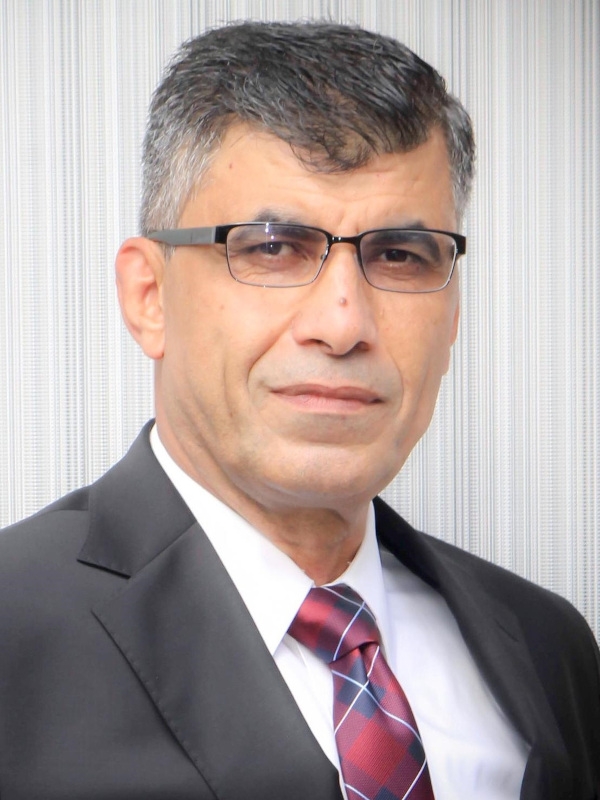About the Daphne Cockwell School of Nursing

The Daphne Cockwell School of Nursing at Toronto Metropolitan University is a dynamic learning space that promotes socially responsive, evidence-informed nursing. Graduates are prepared to lead anti-racist, anti-oppressive, and socially responsive practice to advance inclusive care and equitable outcomes for all.
Welcome and thank you for checking out the Daphne Cockwell School of Nursing (DCSN). Located in the heart of the City of Toronto, the DCSN is a vibrant and forward-thinking school that serves over 2700 undergraduate and graduate nursing students, making it one of the largest nursing programs in Canada. Our faculty and staff are especially invested in the creation of rewarding student experiences that aim to position our students to be successful nurses and change agents. Our faculty and students conduct high impact research and scholarly activities that inform nursing practice and education in an urban environment. We engage with a diverse network of community partners to solve health problems and advance the principle of social justice and equity in health and nursing care.
The DCSN is part of a progressive university that is heavily invested in community building and community service. It is also one of nine schools at the Faculty of Community Services, a unique position that provides our students and faculty with invaluable opportunities for interprofessional education and collaboration.
In addition to our traditional undergraduate collaborative nursing program that we deliver in partnership with George Brown College and Centennial College, we are one of a few Schools of Nursing in Canada that deliver a “Post Diploma Degree Program” which enables three groups of nurses (licensed practical nurses, registered nurses with associate degrees, and internationally educated nurses) to complete their baccalaureate nursing education. Our graduate programs include the non-thesis masters degree in nursing, the thesis-based masters degree in nursing, the Primary Health Care Nurse Practitioner program, and the PhD in Urban Health program.
Driven by our philosophy which is engraved in the principles of social justice and community building, we endorse our academic, professional, and civic responsibilities of being the best we can be in meeting our educational, research, and service missions.
I invite you to navigate our site to learn more about our team and our programs. If you have any questions, please feel free to reach out to me or any of my colleagues in the academic leadership team.
Kindly,
Maher M. El-Masri, PhD, RN, FAAN, FCAN
Professor and Director
Daphne Cockwell School of Nursing

Our Mission:
Through innovative approaches to the scholarship of education, research and practice, we prepare nurses and urban health scholars who are creative, highly skilled, critical thinkers leading anti-racist, anti-oppressive, and socially responsive practice to advance inclusive care and equitable outcomes for all.
Our Vision:
Inspiring courageous transformational leadership to drive social justice and equity in health systems.
Our Values:
Compassion: empathizing with the perspectives, emotions, and experiences of persons and communities with the desire to alleviate their concerns and suffering.
Courage: willingness to be vulnerable and to bring positive change despite anticipated and actual challenges.
Global responsibility: respecting the human rights and dignity of all and acting towards the common good of humanity and the environment.
Humility: engaging in self-reflection and life-long learning with the purpose of respecting and appreciating those whom we serve and with whom we interact.
Integrity: commitment and actions that involve openness, honesty, fairness, and accountability in all academic and professional endeavours.
Respect: recognizing, honouring and celebrating the diversity and dignity of self and others in creating healthy and safe spaces where all can flourish.
Scholarship: dedication to faculty and students, excellence and innovation in learning and teaching, service, research, and creative activities that will contribute to knowledge generation and translation.
Social justice and equity: creating an inclusive and anti-oppressive school community that ensures equity and promotes strength in diversity through individual and collective accountability.
A few highlights:
1964: Toronto Metropolitan University, formerly known as Ryerson University, became the first post-secondary general education institution in Canada to launch a nursing diploma program. Nursing education was typically offered in hospital settings at the time.
1973: This year, the university partnered with Wellesley Hospital, Women’s College Hospital and the Hospital for Sick Children to offer a nursing diploma program.
1980: The school began to offer a bachelor of applied arts in Nursing, enabling registered nurses with a diploma to develop an analytical approach to their nursing practice.
2000: Recognizing the depth of knowledge necessary to meet the needs of a changing health care landscape, the province established new educational requirements for nursing. As of 2000, nursing students were required to attend degree-granting institutions.
2001: In anticipation of the new degree requirements, the university formed an innovative partnership with Centennial College and George Brown College to offer a Collaborative Nursing Degree Program. In 2001, our first students entered this remarkable joint program.
2005: This year, nursing graduates were required to have a bachelor’s degree to practice in most of Canada. Our first cohort of Collaborative Degree students graduated in 2005 — ready to practice. We also introduced a Master of Nursing program, offering professional nurses rewarding opportunities for advanced practice, education and research.
2006: We introduced a post-master’s Primary Health Care Nurse Practitioner (PHCNP) Certificate, an intensive program that prepares nursing professionals to write the College of Nurses of Ontario’ (external link, opens in new window) s NP – Primary Health Care (Ontario) exam.
2008: In honour of Daphne Cockwell and in recognition of her family’s ongoing support for the university, we became the Daphne Cockwell School of Nursing. We are proud to be the first university nursing school in Canada to be named for a nurse.
In the last 20 years, the extent and complexity of community health care has grown rapidly, and this shift has challenged nurses to acquire new levels of leadership and expertise. We are ready to take on the challenge.
Nurses provide care for patients and clients working in partnership to support health and well-being. Beyond the critical role they play in facilitating acute treatment and recovery, registered nurses are involved in health promotion and illness prevention for individuals, families and communities.
Knowledge
Nursing is a field of continual change and evolving knowledge. An evidence-based approach to health care requires a strong foundation in critical thinking, clinical experience, and a commitment to ongoing professional development. Nurses at every level are expert practitioners, researchers and learners.
Compassion
Empathy and understanding are essential in patient-centered nursing. A deep appreciation of humanity, an encouraging attitude and an ability to connect with all members of the community are hallmarks of skilled health care providers.
Leadership
As health care advocates, nurses are leaders in the community. They are socially progressive in promoting health and personally responsive in meeting client needs. Whether collaborating with other professionals, coordinating levels of service, or advocating for patients, nurses inspire individuals and communities toward better health.
We work with partners across Canada and around the world to create outstanding learning, research and placement opportunities for students.
Inter-institutional Collaboration
The Toronto Metropolitan University-Centennial-George Brown Collaborative Nursing Degree Program is a leading-edge learning and clinical environment built on a foundation of productive relationships. We capitalize on the strengths of each other to provide students with the knowledge, skills and personal attributes that can only be achieved through a comprehensive nursing education.
Partnerships between Toronto Metropolitan University's Post Diploma Degree Completion Program, Centennial College's Bridging to University Nursing (external link) program and George Brown College's Academic Pathway for Internationally Educated Nurses (IEN) Graduate Certificate (external link) support diploma-prepared registered practical nurses and internationally educated nurses to earn a degree at Toronto Met.
Our partnership with the G. Raymond Chang School of Continuing Education allows part-time students to balance professional development with their career through the part-time Post-Diploma Degree Completion Program.
Placement Opportunities
Through a strong network of partners, students have access to hundreds of placement sites that reflect the many roles of nursing in today’s complex health care system.
Undergraduate placements enable students to immerse themselves in real-life situations where they translate theory into practice and solidify technical, communication, care-giving and teamwork skills.
Master of Nursing practicum placements provide an important opportunity for students to prepare for advanced professional practice.
Through Primary Health Care Nurse Practitioner Certificate clinical placements, students participate in clinical placements with an emphasis on community and primary health care settings, such as community health centres and GP offices.